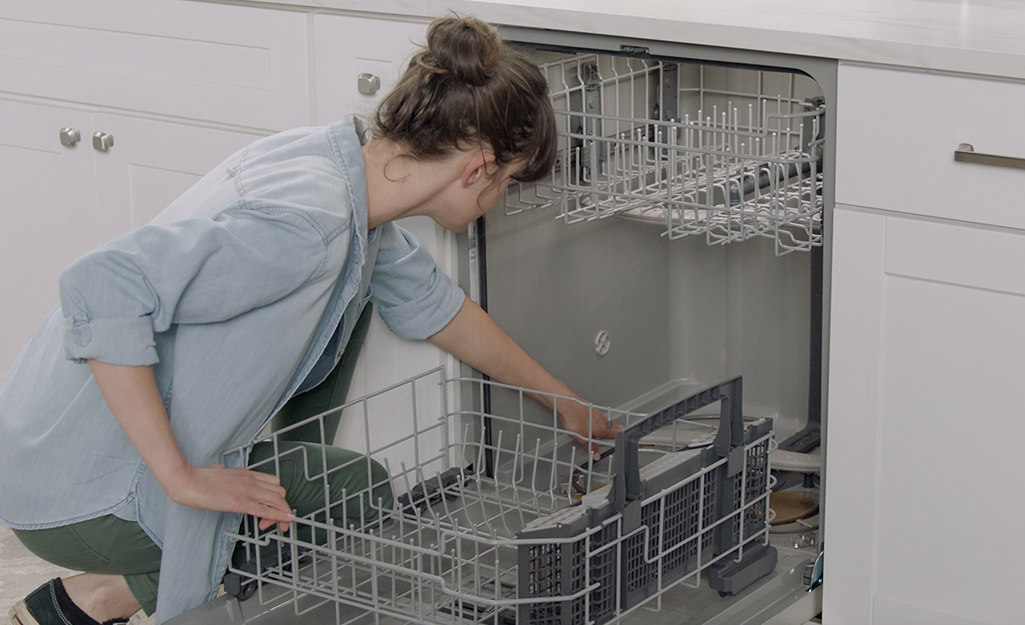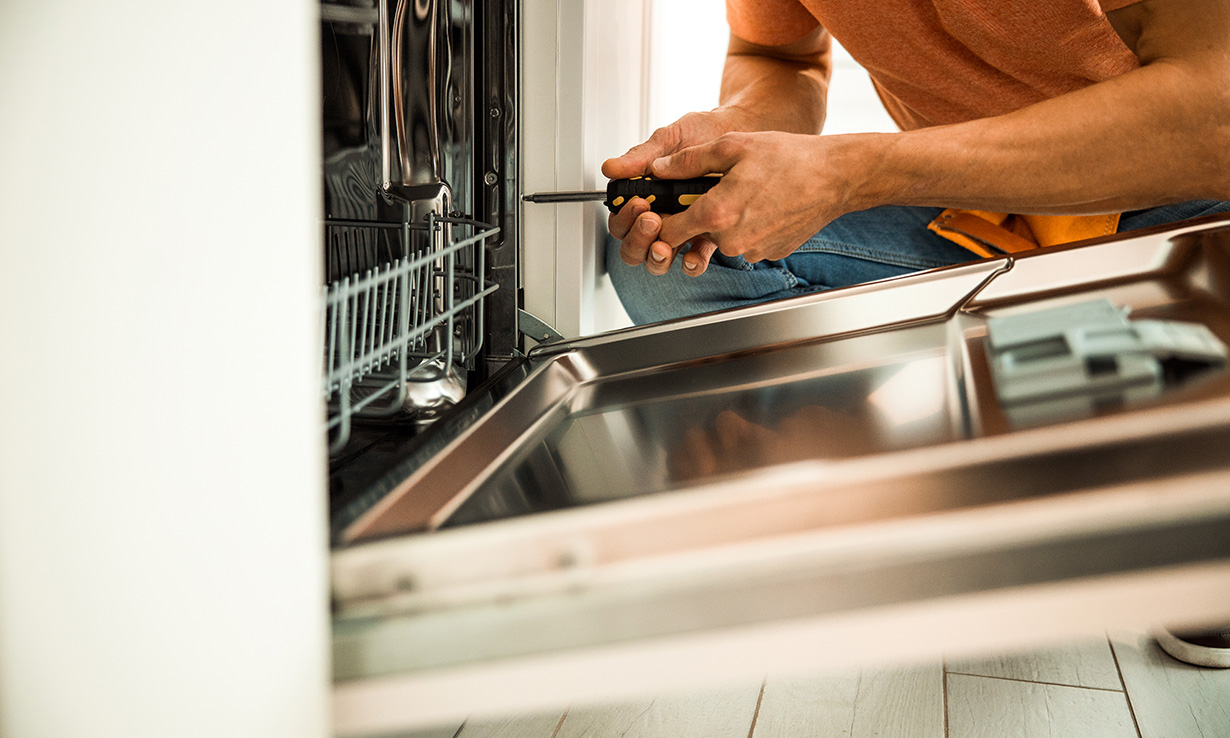Troubleshooting My Dishwasher: Possible Challenges and How to Fix Them
Troubleshooting My Dishwasher: Possible Challenges and How to Fix Them
Blog Article
What're your thoughts concerning Common Dishwasher Problems?

Having your dishwasher malfunction or malfunction can be a big deal as well as trigger some pain at home. Dishwashers are machines that we make use of to clean recipes and also flatwares instantly to save us the stress and anxiety of manually doing it.
Like every other machine that eases human initiative, dish washers can break down and develop some mistake eventually in time. There are numerous mistakes your dishwashing machine could develop, and also while several of them can be fixed by replacing some parts or fixing them, various other much more severe flaws will require that you obtain a new dish washer.
This post will certainly identify a couple of usual faults your dishwashing machine could create to hinder its total performance and also exactly how these mistakes can be addressed.
Typical Faults
Typical dishwashing machine mistakes can vary from minor to major ones. Depending on the degree, you will certainly either need the services of specialist plumbing professionals to deal with or replace it.
Some of the most typical mistakes consist of:
Leaky Dishwasher
This is possibly one of the most everyday dishwasher trouble, and the bright side is that it is very easy to determine. Leaks take place because of numerous factors, and the leakages can ruin your cooking area. Typical causes of dishwasher leakages include;
If your dishes and flatwares come out of the dish washer and still look filthy or unclean, your spray arms may be a trouble. In many cases, the spray arms can obtain blocked, as well as it will call for a fast tidy or a replacement to work properly once more.
Failure to Drain pipes
Often you might see a huge quantity of water left in your bathtub after a clean. That is possibly a drain trouble. You can either inspect the drain hose pipe for damages or clogs. When doubtful, speak to an expert to have it checked and also taken care of.
This is another usual dish washer issue, and it is mainly caused by food debris or grease sticking around in the device. In this case, try to find these bits, take them out and do the meals with no recipes inside the machine. Clean the filter completely. That will aid do away with the bad scent. Ensure that you get rid of every food fragment from your meals prior to moving it to the equipment in the future.
Final thought
Some of these common dishwasher faults can be dealt with conveniently in your home, however sometimes, the mistakes could be substantial as well as might need the interest of professionals. If you stay in Rochester, Syracuse, and various other parts of America, let the specialists effectively detect what could be incorrect with your dishwashing machine and proffer a remedy.
We likewise set up dishwashing machines if you simply got a new one or plan to change your very own. With our many years of experience in the market, we are sure to offer you the very best possible services.
8 Most Common Dishwasher Problems & How to Fix Them
My Dishwasher Isn't Draining
If your dishwasher isn't draining properly, you may be having an issue with your dishwasher's drainage system. This can be caused by a variety of issues:
Clogged drain: The dishwasher's drain may be clogged with food particles or other debris. Malfunctioning pump: The dishwasher's pump is responsible for moving water through the system and out of the drain. If it's damaged or not working correctly, it could cause a drainage failure. Broken or clogged hose: The dishwasher's drain hose may be broken or clogged, causing water to back up in the system. How to Fix Dishwasher Not Draining
Check the drain for any blockages. A clogged or kinked hose will prevent water from properly draining out of the dishwasher. Use a plunger or a pipe snake to clear any debris that may be blocking the drain. Check the dishwasher's pump for damage or malfunction. Consult the manufacturer's manual or call a professional appliance repair service if you think the pump may be the issue. Check the drain hose for any damage or blockages. The hose should be straight and free of any debris or kinks. Check the drain pump filters for any blockages if the hose is clear, but the dishwasher is still not draining. Some dishwashers have filters that can become clogged with food particles or debris. Cleaning or replacing the filters may help resolve the issue. Run a dishwasher cycle to make sure the water is properly draining out. My Dishwasher Is Leaking
A leaking dishwasher can be frustrating. There are a few possible causes that you can investigate to try and diagnose the issue:
Inspect the dishwasher for any visible signs of damage or wear and tear. Look for cracks or holes in the door and around the rubber seal. Check the hoses and pipes connected to the dishwasher for any signs of leaking. If there is no visible damage, you may hear the sound of water dripping or the sound of the water pump running. This might mean a problem with the water inlet valve or the drain pump. You may also notice a puddle of water on the floor near the dishwasher. This could indicate a blocked drain hose or a faulty drain pump. Finally, check the seals around the door and the door for any signs of damage, wear and tear, or improper installation. If any of these issues are present, they must be fixed immediately to avoid further water damage. How to Fix a Leaky Dishwasher
Identify where the leak is coming from. The most common places for a dishwasher to leak include the door, hoses, and pump. If the leak is coming from the door, the gasket or seal may need to be replaced. If the leak is from the hose or pump, the damaged parts should be replaced with new ones. Finally, check all the connections and make sure they are secure and not leaking How to Fix a Dishwasher That Won't Start
The perfect remedy for a dishwasher that won't start is confirming all the components are in perfect working order and that the wiring is in good condition. Next, inspect the motor and replace it if necessary.
If these steps do not resolve the problem, contact a professional appliance repair technician to diagnose and fix the issue.
Conclusion
Most dishwashers are reliable appliances with a long lifespan. As with all devices, checking your dishwasher regularly will help you quickly identify any issues and ensure that it is running efficiently.
And if you're in the market for a new dishwasher, don't let dishwasher problems ruin your day. Upgrade to a reliable, efficient model today! Check out our full selection of top-quality dishwashers that includes a range of styles and features to suit any budget and household needs.
https://www.coastappliances.ca/blogs/learn/common-dishwasher-problems

I'm certainly very involved in Common Dishwasher Problems and I am assuming you enjoyed my blog post. If you please take the opportunity to promote this blog if you appreciated it. Thank you so much for your time spent reading it.
Navigate plumbing issues professionally. Report this page